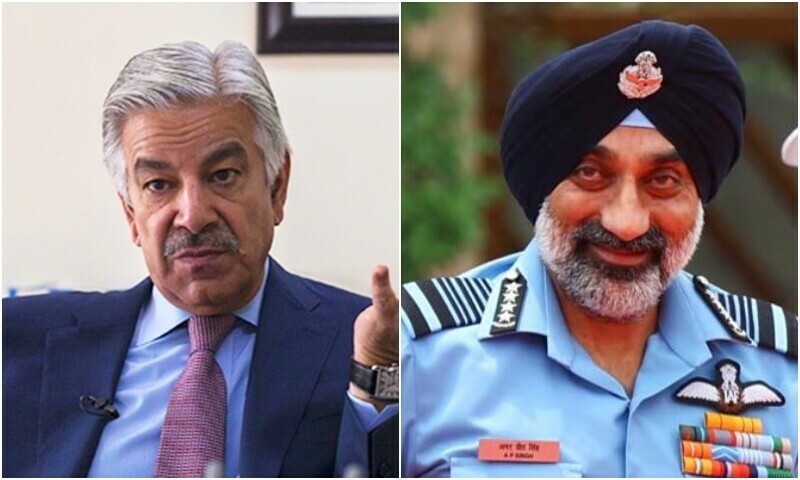Indian Air Force chief claims downing of five Pakistani jets
By Muhammad MubashirPublished On 03 Oct 2025

Reuters: Indian Air Force Chief Amar Preet Singh on Friday claimed that his country “downed five Pakistani fighter jets of the F-16 and JF-17 class” during the intense fighting between the nuclear-armed neighbours in May.
“As far as air defence part is concerned, we have evidence of one long-range strike … along with that five fighters, high-tech fighters between F-16 and JF-17 class, our system tells us,” Singh told reporters at the Indian Air Force annual day press conference. However, he did not share the said evidence.
The F-16 is a US-made fighter jet, while the JF-17 is of Chinese origin.
Although Singh had previously too claimed without credible evidence that five Pakistani fighter jets and another military aircraft were shot down during the conflict, this is the first time New Delhi has mentioned the class of jets in public. He also refused to comment on Pakistan downing Indian jets in May.
His comments come a week after Prime Minister Shehbaz Sharif, during a United Nations General Assembly speech, said that the Pakistan Air Force turned “seven of the Indian jets” into scrap and dust. Earlier this week, United States President Donald Trump also described how he confronted both nations during an active war that saw “seven aircraft shot down” and tensions rapidly escalating between the two neighbours.
In the immediate aftermath of the conflict, Pakistan said it took down six Indian fighter jets during the conflict, including the French-made Rafale.
New Delhi acknowledged “some losses” during the conflict but denied losing six jets. In response, Defence Minister Khawaja Asif dismissed the “implausible” Indian assertions, offering instead to open both countries’ air fleets to independent verification.
“The belated assertions made by the Indian Air Force chief regarding alleged destruction of Pakistani aircraft during Operation Sindoor are as implausible as they are ill-timed,” Khawaja Asif said in a sharply worded August statement. “It is also ironic how senior Indian military officers are being used as the faces of monumental failure caused by the strategic shortsightedness of Indian politicians.”
He also said that India did not make any such claims for three months after the conflict ended, while Pakistan immediately presented detailed technical briefings to the international media, and independent observers recorded widespread acknowledgement of the loss of multiple Indian aircraft, including Rafales, by sources ranging from world leaders, senior Indian politicians, to foreign intelligence assessments.
The May fighting, the worst between the old foes in decades, was sparked by an attack on Hindu tourists in occupied Kashmir, which New Delhi, without evidence, said was backed by Pakistan.
Pakistan has denied involvement, with the foreign ministry having questioned the credibility of India’s account of the events, saying it was “replete with fabrications”.
Both sides used fighter jets, missiles, artillery and drones during the four-day conflict, killing dozens of people, before agreeing to a ceasefire.
Ties between the countries have downgraded since the attack, with the impact being felt in areas ranging from trade and travel to sports.
India has also kept in abeyance the Indus Waters Treaty — a move Pakistan termed an “act of war”.








